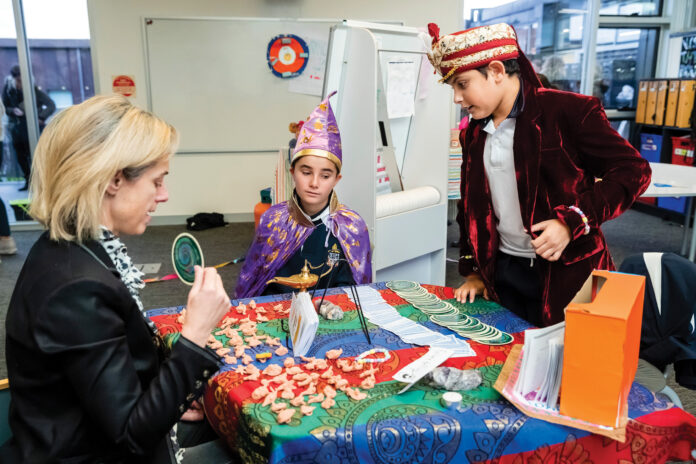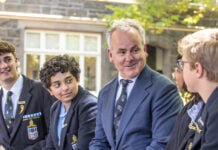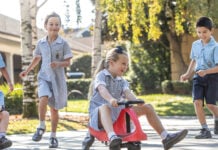Year 5 and 6 students are taking their first entrepreneurial steps through two unique programmes – Market Day and $20 Boss.
Market Day is one of the highlights of the Year 5 calendar at Grimwade House. Working in small groups, students create and market a product or a service which can be ‘sold’ at an event staged at the School. Parents and students are invited to exchange gold coins for tokens, and they use these to purchase items on the day.
“We had to create a sustainable business,” explains Year 5 student, Alexandra. “That meant we needed to make enough money to keep it running but we also needed to think about how to do this in an environmentally responsible way.” Alexandra’s group sold bath bombs and soaps which they made using materials available within their own homes.
For Year 5 student, Freddie, there were a lot of learnings along the way. “Having people with different strengths in our team was a good thing. Teams work best when every person is good at something different,” he says. “I also learnt that it is important to treat your customers well. Lots of people came to our stall through word of mouth.” Freddie’s group printed bespoke artwork on canvases and notebook covers, again using existing materials.
“Parents came in and spoke to students about running their own businesses as part of the Unit of Inquiry,” says Ms Steph Freeman, Year 5 teacher. “Interestingly, the students heard similar messages from all of them – businesses are most successful when you are doing what you love, but you still have to work hard at it, you have to listen to your consumers, and you have to be willing to change and adapt to meet their needs. It was an invaluable contribution to student learning.”
In Year 6, students become a ‘$20 Boss’. Starting with just $20, students are again challenged to develop a sustainable business, but in a much more detailed, longer term way.
Underpinned by a design thinking approach, the Unit focuses on building both financial literacy and 21st century entrepreneurial skills. “Even if our students do not go onto to become entrepreneurs themselves, we know that enterprising behaviours and capabilities are important in business and industry today,” explains Mr Simon Cowell, Year 6 Level Coordinator.
“One of the most rewarding elements of the programme relates to the behavioural changes it can foster,” says Mr Cowell. “Students of this age don’t always cope well with negative feedback but, in this case, the students are pitching their ideas to each other, taking on feedback and then proactively redesigning their idea to better meet need. They begin to learn that criticism, when constructive, can be helpful.”
For Year 6 student, Roman, this was just the case. “My original idea was to develop a wax for surfboards, but the ingredients I would have needed to use were not all sustainably produced so I needed to change,” says Roman. Eventually developing a special lip balm, Roman credits the feedback he received with improving the final outcome. “I’d overlooked some obvious faults,” he says. “The feedback made my product better.”
Similarly, feedback helped shape Year 6 student, Josephine’s thinking. “Feedback made me change to make something people actually wanted to buy,” she says. “I created a product called Solar Cola. It is a compact, portable solar panel charger held in a recycled soft drink bottle.”



